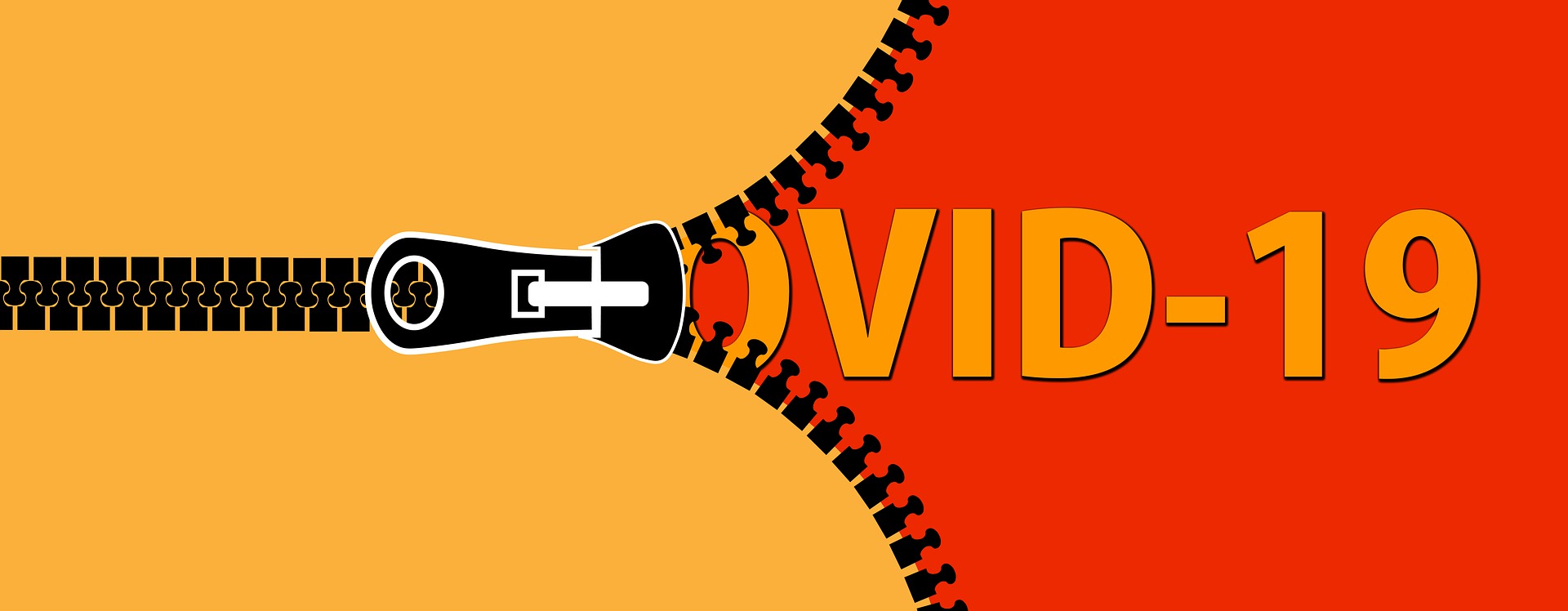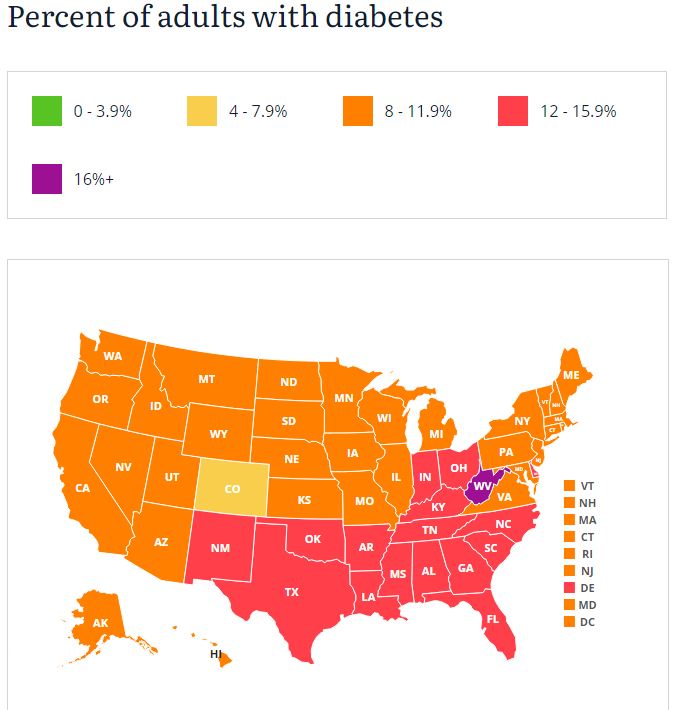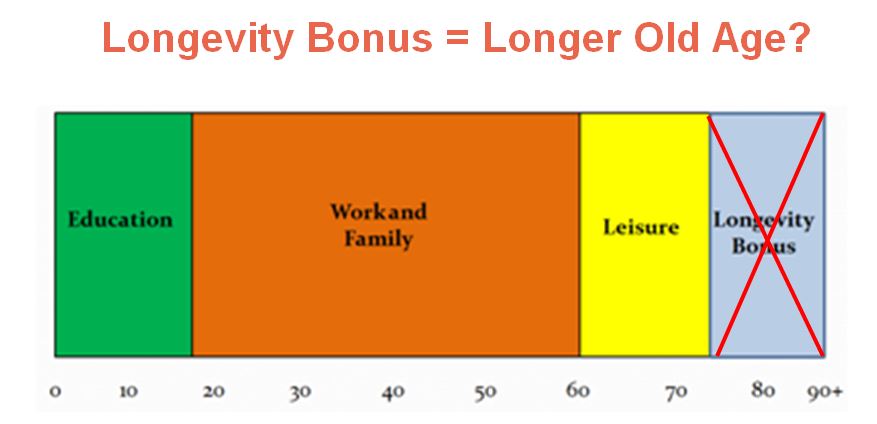We Can Save Us From Ourselves. COVID is Teaching Us How. Are We Listening?

I had a dream this week.
I dreamed that Dr. Anthony Fauci pushed Donald aside from his podium charade, looked the viewing public in the eye, and said:
Stop listening to the media and politicians, get off your asses, change your diet, and stop whining about being a victim! We’re not coming to save you!
And he walked off. All channels cut to commercials.
OK, I didn’t really have that dream. I wish I had. Or, better yet, that it really happened.
This week, Reuters Health News published an article “Why COVID-19 is killing U.S. diabetes patients at alarming rates.” Read it here if you’ve got 10 minutes you would like to waste.
For those with a higher value on your time, let me summarize:
A government study reveals that 40% of people who died with COVID-19 had diabetes. Among the deaths of those under 65, half had the chronic condition.
In the 1,537 word Reuter’s article, the phrase “type 2 diabetes” appears ONCE! No reference to type 1 diabetes or to the difference. Or to the fact that amongst diabetics, 91.2 % have type 2 diabetes and 5.6 % have type 1 diabetes
In 1,537 words, the word obesity does not appear once!
In 1,537 words, the word diet does not appear once!
In 1,537 words, the word exercise appears once, and only in the context that COVID is disrupting our ability to exercise. WHAT?
God forbid there should be any mention of the fact that type 2 diabetes is largely a lifestyle disease – mostly self-inflicted, preventable, and often reversible.
 No mention that roughly 30% of overweight people have the disease, and 85% of diabetics are overweight.
No mention that roughly 30% of overweight people have the disease, and 85% of diabetics are overweight.
Or that the AMA estimates that 50% of the U.S. population is pre-diabetic and 70% don’t know it.
But then revealing painful truth has never been a narrative amongst the politically-correct or victim crowd. Or politicians. Or ratings-seeking media.
I’m reminded of the Winston Churchill quote:
“Men occasionally stumble over the truth, but most of them pick themselves up and hurry off as if nothing ever happened.”
We stumbled across the truth about diabetes, lifestyle, obesity, diet, immobility, etc. I would guess about a half-century or more ago. And, yes, we continue to “hurry off as if nothing happened” or, more accurately, as if revealing the truth would mean we’d have to say something hurtful, or unkind, or racist.

Since the establishment seems given to owning our every move at this point, would it be too much to alter the dialog to something like:
“OK, everybody now must mask up. Oh, and now you are required to eat your vegetables and walk around the block after you do.”
Yeah, when hell becomes an ice-factory.
But what if we carved off about 1% of what we pay China for the PPE we outsourced to them years ago and used it to ship a handful of “truth conveyors” into the diabetic states, starting with W. Virginia. People like Dr. Michael Greger or Dr. David Katz. With a simple message of truth similar to “get off your asses, change your diet, and stop whining –“. You get my point.
If we must have a podium parade of purported professionals, can we add at least one other with causal knowledge and credibility to join Dr. Fauci? Someone like Dr. Greger with a message like this one – watch this video.
Someone that isn’t afraid to say “we are what we eat.”
This past year, early deaths due to poor diet surpassed smoking as the #1 cause of early death in the U.S. So, after several decades of pounding the smoking message we got a little smarter (that is until Juul and their ilk came along to further confirm that adolescent brains stay adolescent until the mid-20’s). But, we’ve filled that newly available intelligence space with “I’ll just Big Mac my way to an early demise instead of Marlboro it.”
Pete Seeger wrote it, Peter, Paul, and Mary sang it: “When will we ever learn?”
Probably never, as Churchill so aptly pointed out. We’ll wait for miracles from medical science rather than let health science take the podium. Because to mess with medical science is to disrupt a medical/pharmaceutical cohort that knows only “cure” and fears the impact a “prevention” message would have on their profit model. And a factory farm/chemical food industry complex that doesn’t give a hoot about our health and isn’t gonna change.
Forgive my rant.
Then again, don’t. Can we collectively get a little pissed and begin to understand that government and corporations can’t and won’t save us from ourselves? And that, in fact, many of their motives and missions are counter to our well-being.
Our healthcare and pharmaceutical industries would collapse if we started thinking like the ancient Greeks. Twenty-five hundred years ago, they had it right. They identified that medicine had two components – Hygeia and Panacea. Hygeia equals health preservation and Panacea equals repair. For the Greeks, Hygeia held precedence.
Do we fully appreciate how far we have strayed from that model?
Hygeia means prevention – it happens on the front end.
Panacea means “fix it” – it happens because of bad “front end” decisions. Type 2 is the accumulation of a lot of bad “front end” decisions.
We can’t expect our healthcare and pharmaceutical industries to start pounding the prevention drum. Their existence depends on – thrives on – our self-care naivete and neither attempts to alter that naivete. And certainly, crafty food engineers figured this out long ago and capture our taste buds early with food-like substances that ultimately push us into the fix-it mill.
We’re smarter than this!!
I’ll wrap by repeating this insight from “Forks Over Knives”:
The Standard American Diet (SAD) is deplorable and is killing us early.
-
- 63% of America’s calories come from refined and processed foods (e.g. soft drinks, packaged snacks like potato chips, packaged desserts, etc.)
- 25% of America’s calories come from animal-based foods
- 12% of America’s calories come from plant-based foods
- Unfortunately, half of the plant-based calories (6%) come from french fries. That means only 6% of America’s calories are coming from health-promoting fruits, vegetables, whole grains, nuts, and seeds.
Let that last bullet point sink in.
There’s a good reason we abbreviate the standard American diet to S.A.D. The standard American diet leads to standard American diseases that lead to standard American deaths.
Why did we need COVID-19 to confirm something we already knew? What are the chances that we will further confirm it when the next virus comes to town?
And it will.
Leave a comment. And join the “truth squad” and spread the word. But first, eat your vegetables. That is, after signing up for our weekly articles at www.makeagingwork.com if you haven’t already.















